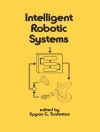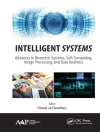This book solicits the innovative research ideas and solutions for almost all the intelligent data intensive theories and application domains. The proliferation of various mobile and wireless communication networks has paved way to foster a high demand for intelligent data processing and communication technologies. The potential of data in wireless mobile networks is enormous, and it constitutes to improve the communication capabilities profoundly. As the networking and communication applications are becoming more intensive, the management of data resources and its flow between various storage and computing resources are posing significant research challenges to both ICT and data science community.
The general scope of this book covers the design, architecture, modeling, software, infrastructure and applications of intelligent communication architectures and systems for big data or data-intensive applications. In particular, this book reports the novel and recent research works on big data, mobile and wireless networks, artificial intelligence, machine learning, social network mining, intelligent computing technologies, image analysis, robotics and autonomous systems, data security and privacy.
Jadual kandungan
A Semi-supervised Learning Approach for Complex Information Networks.- Preventing Fake Accounts on Social Media using Face Recognition based on Convolutional Neural Network.- Feature-wise Opinion Summarization of Consumer Reviews using Domain Ontology.- Robust Automated Machine Learning (Auto ML) System for Early Stage Hepatic Disease Detection.- Analytical Classification of Sybil Attack Detection Techniques.- Smart and Autonomous Door Unlocking System Using Face Detection and Recognition.- Early Detection of Diabetes by Iris Image Analysis.- A New Avenue to the Reciprocity Axioms of Multidimensional DHT through those of the Multidimensional DFT.- Automated Surveillance Security System using Facial Recognition for Homes and Offices.
Mengenai Pengarang
Dr. D. Jude Hemanth received his B.E. degree in ECE from Bharathiar University in 2002, M.E. degree in Communication Systems from Anna University in 2006 and Ph.D. from Karunya University in 2013. His research areas include computational intelligence and image processing. He has authored more than 100 research papers in reputed SCIE indexed/Scopus indexed international journals and international conferences with leading publishers such as Elsevier, Springer, IEEE, etc. His Cumulative Impact Factor is more than 100. He has authored 1 book with (VDM-Verlag, Germany) and 24 edited books with reputed publishers such as Elsevier, Springer, IET and IOS Press.
Dr. Robert Bestak obtained a Ph.D. degree in Computer Science from ENST Paris, France (2003), and M.Sc. degree in Telecommunications from Czech Technical University in Prague, CTU, (1999). Since 2004, he has been an Assistant Professor at the Department of Telecommunication Engineering, Faculty of Electrical Engineering, CTU. His main research interests include 5G networks, cognitive networks and spectrum management. He is the Czech representative in the IFIP TC6 working group, and he serves as Associate Editor of Telecommunication System and Electronic Commerce Research, Springer. Dr. Bestak has served as Steering and Technical Program Committees member for numerous IEEE/IFIP international conferences. He participated in several national and EU founded research projects (FP7-ROCKET, FP7-TROPIC, etc.)
Dr. Joy Iong-Zong Chen is currently a Full Professor of the Department of Electrical Engineering Dayeh University at Changhua Taiwan. Prior to joining the Dayeh University, he worked at the Control Data Company (Taiwan) as a Technical Manager from September 1985 to September 1996. His research interests include wireless communications, spread spectrum technical, OFDM systems and wireless sensor networks. He has published a large number of SCI journal papers in the issues addressed physical layer for wireless communication systems. Moreover, he also majors in developing some applications of the IOT (Internet of Thing) techniques, and Dr. Joy I.-Z. Chen owned some patents authorized by the Taiwan Intellectual Property Office (TIPO).












